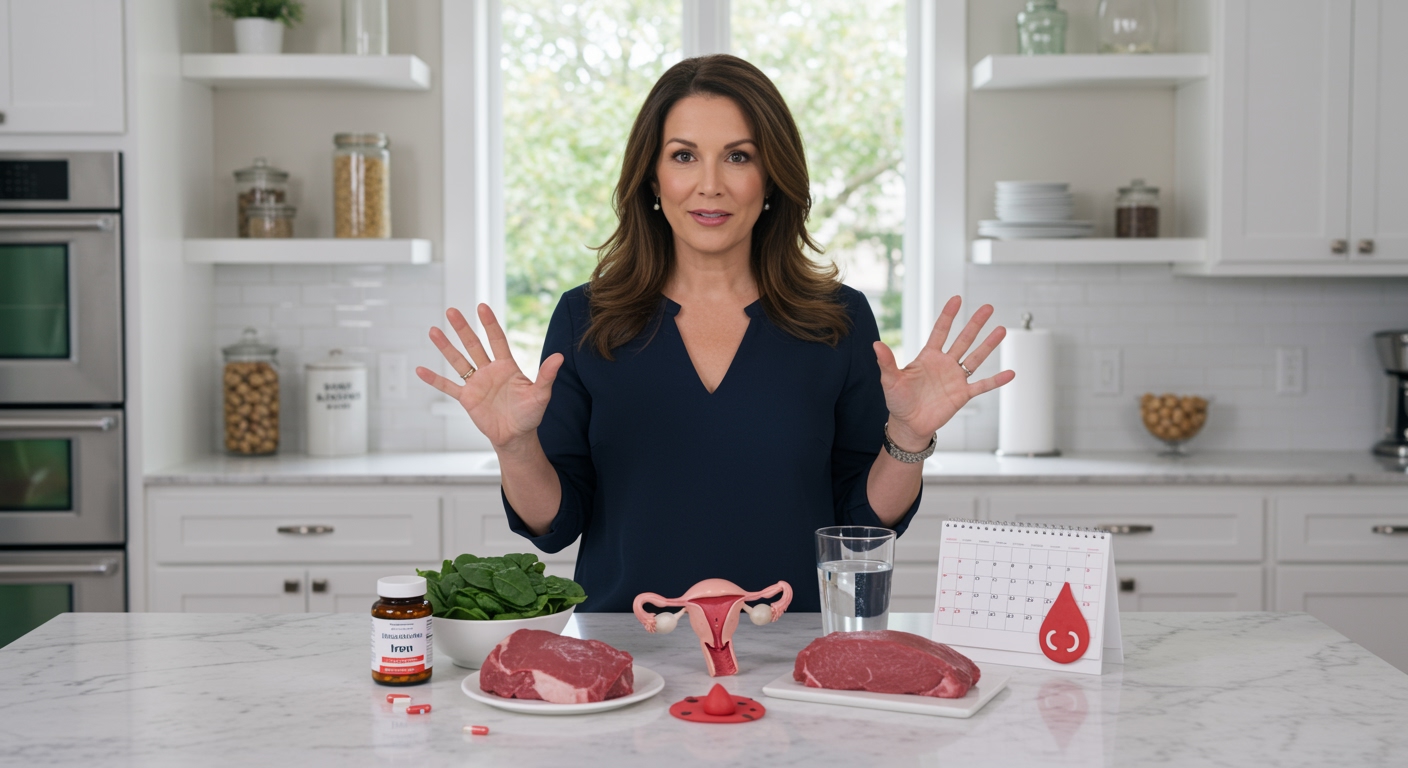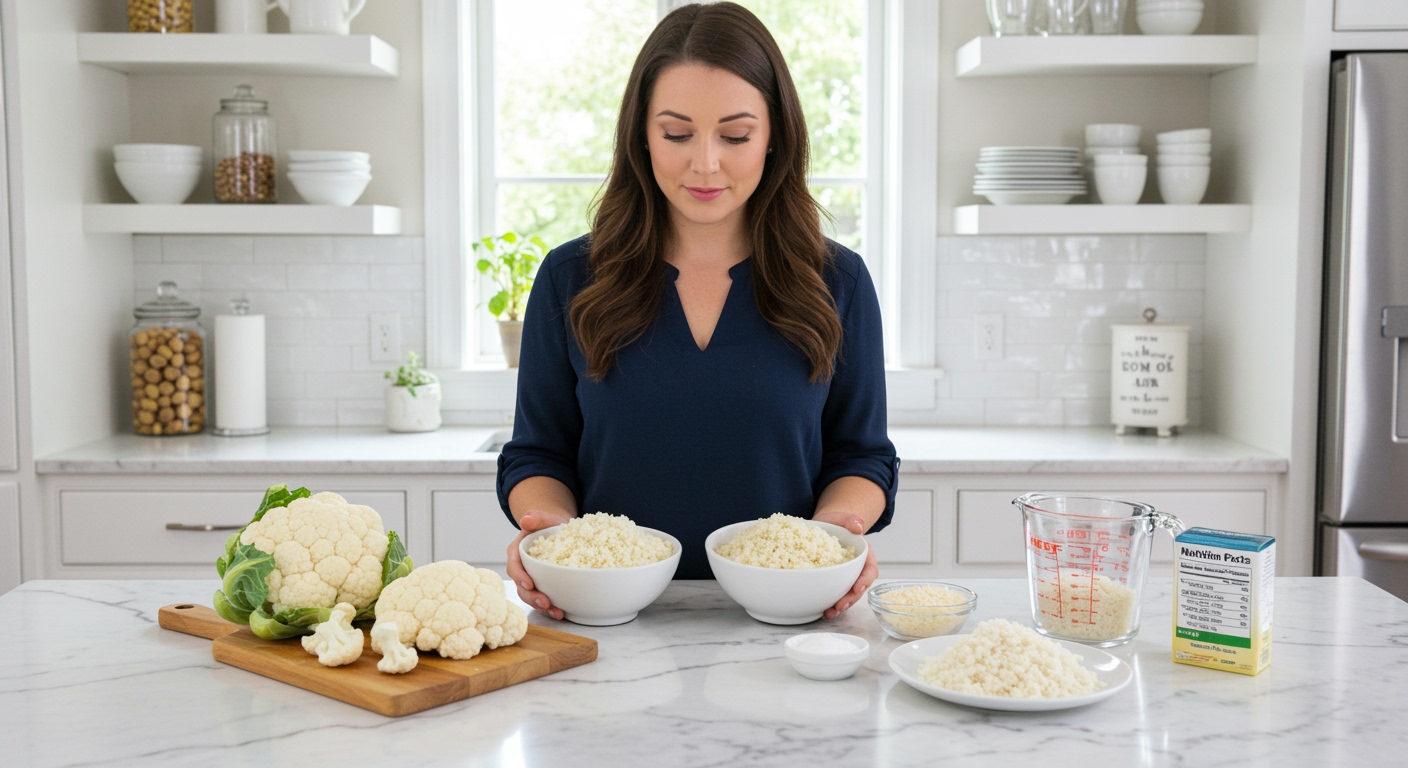✪ Key Takeaway: Iron supplements can help reduce PCOS heavy periods by preventing anemia, but timing and absorption factors determine their effectiveness.
Introduction
Your period arrives like a flood, leaving you exhausted and reaching for another pad within hours.
Women with PCOS often experience this nightmare monthly, wondering if iron supplements might offer the relief they desperately need.
Hi, I’m Abdur, your nutrition coach, and today I’m going to explain exactly how iron supplements work for PCOS heavy periods and when they actually help.
Why Do PCOS Periods Cause Iron Loss?
PCOS disrupts your normal menstrual cycle through hormonal imbalances that affect ovulation timing.
When you don’t ovulate regularly, your uterine lining builds up for months without being shed properly.
This leads to extremely heavy bleeding when your period finally arrives, often lasting 7-10 days instead of the normal 3-5 days.
Each milliliter of menstrual blood contains about 0.5 milligrams of iron, so heavy periods can cause significant iron depletion.
Studies show that women with PCOS lose 2-3 times more menstrual blood than women with regular cycles.
This excessive blood loss creates a cycle where iron deficiency makes periods even heavier and more prolonged.
✪ Fact: Women with PCOS have 40% higher rates of iron deficiency anemia compared to women without PCOS.
How Do Iron Supplements Reduce Heavy Bleeding?
Iron supplements work by replenishing depleted iron stores in your bone marrow where red blood cells are made.
When your iron levels improve, your body produces healthier red blood cells that carry oxygen more efficiently.
Better oxygen delivery to your uterine muscles helps them contract more effectively during menstruation.
These stronger contractions compress blood vessels in the uterine lining, reducing the amount of blood lost.
Iron also supports the production of clotting factors that help your body stop bleeding more quickly.
Research shows that correcting iron deficiency can reduce menstrual blood loss by up to 30-40% in women with heavy periods.
✪ Pro Tip: Take iron supplements with vitamin C to increase absorption by up to 300%.
What Type of Iron Works Best for PCOS?
Ferrous sulfate remains the most commonly prescribed form because it provides the highest amount of elemental iron per dose.
However, ferrous sulfate often causes stomach upset, nausea, and constipation that make women stop taking it.
Ferrous bisglycinate offers better absorption with fewer digestive side effects because it’s bound to amino acids.
This chelated form bypasses the stomach’s acidic environment and gets absorbed directly in the small intestine.
Women with PCOS often have insulin resistance that can interfere with iron absorption, making the chelated form more effective.
Start with 18-25 mg of elemental iron daily, taken on an empty stomach if tolerated.
Take iron supplements at least 2 hours away from calcium, coffee, tea, or fiber supplements that block absorption.
✪ Note: Always test your iron levels before starting supplements to avoid iron overload complications.
When Should You Expect Results?
Your body needs 6-8 weeks of consistent iron supplementation to rebuild depleted iron stores.
You might notice improved energy levels and less fatigue within 2-3 weeks as your hemoglobin levels start rising.
The reduction in menstrual flow typically becomes noticeable after 2-3 menstrual cycles of adequate iron intake.
Some women see improvements in their first cycle, while others need 3-4 months for significant changes.
Your response depends on how severely deficient you were initially and how well you absorb the supplements.
Track your period flow, duration, and energy levels in a journal to monitor progress objectively.
✪ Pro Tip: Retest your iron levels after 3 months to ensure you’re reaching optimal ranges safely.
Are There Any Risks or Side Effects?
Iron supplements can cause digestive upset including nausea, constipation, and stomach pain in sensitive individuals.
Taking too much iron can lead to iron overload, which damages your liver, heart, and pancreas over time.
Women with PCOS already have higher rates of insulin resistance, and excess iron can worsen this condition.
Iron supplements can interact with thyroid medications, antibiotics, and blood pressure medications.
Some people have genetic conditions like hemochromatosis that cause dangerous iron accumulation.
Always work with a healthcare provider to monitor your iron levels and adjust dosing appropriately.
Stop supplementing once your iron stores reach normal levels to prevent toxic buildup.
✪ Note: Black stools are normal with iron supplements, but severe stomach pain requires medical attention.
The Bottom Line
Iron supplements can significantly reduce PCOS heavy periods when iron deficiency is the underlying cause.
Smart supplementation starts with testing, not guessing – because the right approach transforms your monthly experience from exhausting to manageable.
Share your experience with iron supplements and PCOS periods in the comments below, or let me know if you have questions about finding the right approach for your situation.
References
At NutritionCrown, we use quality and credible sources to ensure our content is accurate and trustworthy. Below are the sources referenced in writing this article:
- PMC: Polycystic ovary syndrome and iron overload
- Mayo Clinic: Heavy periods: Can iron supplements help?
- PMC: Iron deficiency anemia and PCOS
- PCOS Nutrition: PCOS Periods and Iron Loss





